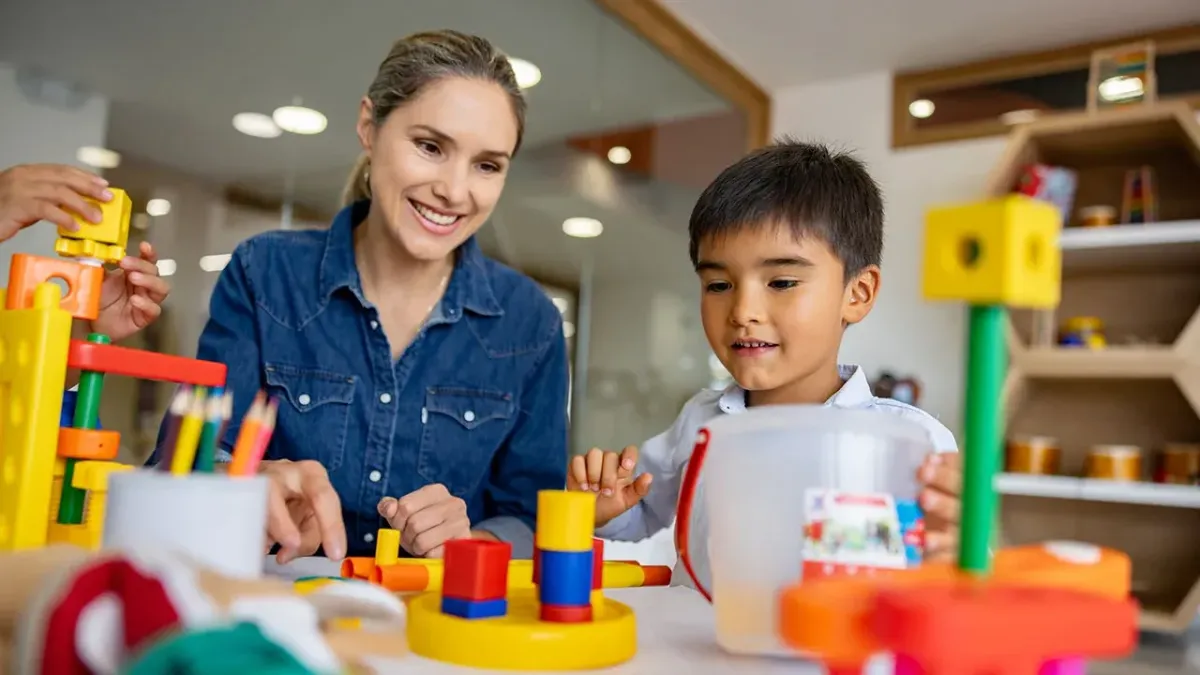Harmony in
Neurodiversity
THE BLOG
Welcome to Harmony in Neurodiversity, a blog dedicated to exploring the profound impact of music and positive parenting strategies on the lives of neurodivergent individuals. Join Samantha, a board-certified Neurologic Music Therapy fellow and a passionate Positive Discipline Parent Educator, as she shares her expertise in leveraging the power of music and effective parenting approaches to support and empower neurodiverse communities.
In her blog posts, Samantha delves into the intricate connections between music and the brain. She explores how specific musical elements and interventions can enhance cognitive functions, regulate emotions, improve communication, and promote social interaction among neurodivergent individuals. Through insightful articles and case studies, she demonstrates how rhythm, melody, and lyrics can serve as powerful tools for therapeutic interventions, fostering growth and self-expression.
Positive Discipline Parenting Strategies:
Drawing from her expertise as a Positive Discipline Parent Educator, Samantha sheds light on nurturing positive relationships between parents and neurodivergent children. Her blog offers practical advice, evidence-based strategies, and real-life anecdotes that empower parents and caregivers to cultivate respectful, encouraging, and effective parenting techniques. From setting clear boundaries to fostering a supportive environment, Samantha guides readers in navigating the challenges and joys of parenting neurodiverse children.
Exploring Intersectionality:
Samantha doesn't limit her discussions to singular approaches. Instead, she delves into the intersectionality of Neurologic Music Therapy and Positive Discipline Parenting, illustrating how these methodologies complement each other. Through her insightful content, she showcases how the harmonious integration of music-based interventions and positive parenting strategies can create holistic support systems for neurodivergent individuals, promoting their well-being and personal growth.
Community Engagement and Resources:
Additionally, Samantha fosters a vibrant online community where readers can engage, share experiences, and seek advice. She curates a wealth of resources, including recommended readings, workshops, and practical tools, empowering her audience to implement valuable insights into their lives effectively.

One Hundred Episodes and Five Lessons for Raising Kids with ADHD and Autism
Reaching 100 episodes of the Every Brain is Different podcast feels both surreal and deeply rewarding. What started as a way to share real, honest conversations about raising neurodivergent kids has grown into a community of parents, professionals, and individuals who just get it.
Over the past year and a half, Lauren and I have spoken with experts, shared our my parenting journey, and connected with listeners around the world.
Along the way, five key lessons have come up again and again.
Here’s what we’ve learned:
1. Community is Everything
When you're parenting a child with ADHD or autism or figuring out your own neurodivergence, you need people who understand your experience. Finding a supportive community can be life-changing. Whether it's a local group or an online space, being around people who get it helps you feel less alone, more understood, and more empowered.
2. Trust Yourself as a Parent
There’s no shortage of advice out there. From therapies to parenting strategies to conflicting opinions, it can feel overwhelming. But at the end of the day, you know your child best. Trusting your instincts and observing what works for your family is more powerful than any one-size-fits-all approach.
3. Advocacy Starts with You
Advocating for your child’s needs can feel daunting, especially when systems are slow to catch up. But showing up, speaking out, and asking for what your child needs makes a difference. Your advocacy teaches your child how to speak up for themselves, too. And when you trust your gut and follow through, you’re modeling confidence and resilience.
4. Behavior is Communication
When a child melts down in the store or refuses to complete a task, it’s not about defiance; it’s about communication. Every behavior tells a story. When we pause and get curious, we can start to understand what’s really going on beneath the surface. This mindset shift can transform how you respond to tough moments.
5. Connection and Play Make Learning Stick
Research shows that kids learn best through play. That’s why connection always comes first. When you get on your child’s level, follow their lead, and bring joy into learning moments, they absorb so much more. It’s effective and strengthens your relationship in the process.
Lauren and I are so proud of what the Every Brain is Different podcast has become, and we’re incredibly grateful for every listener who’s been part of this journey.
Listen to Episode 100 to hear us talk through these lessons and what they’ve meant in our lives.
If you’re looking for more support, check out our Neurodivergent Parenting Community.


